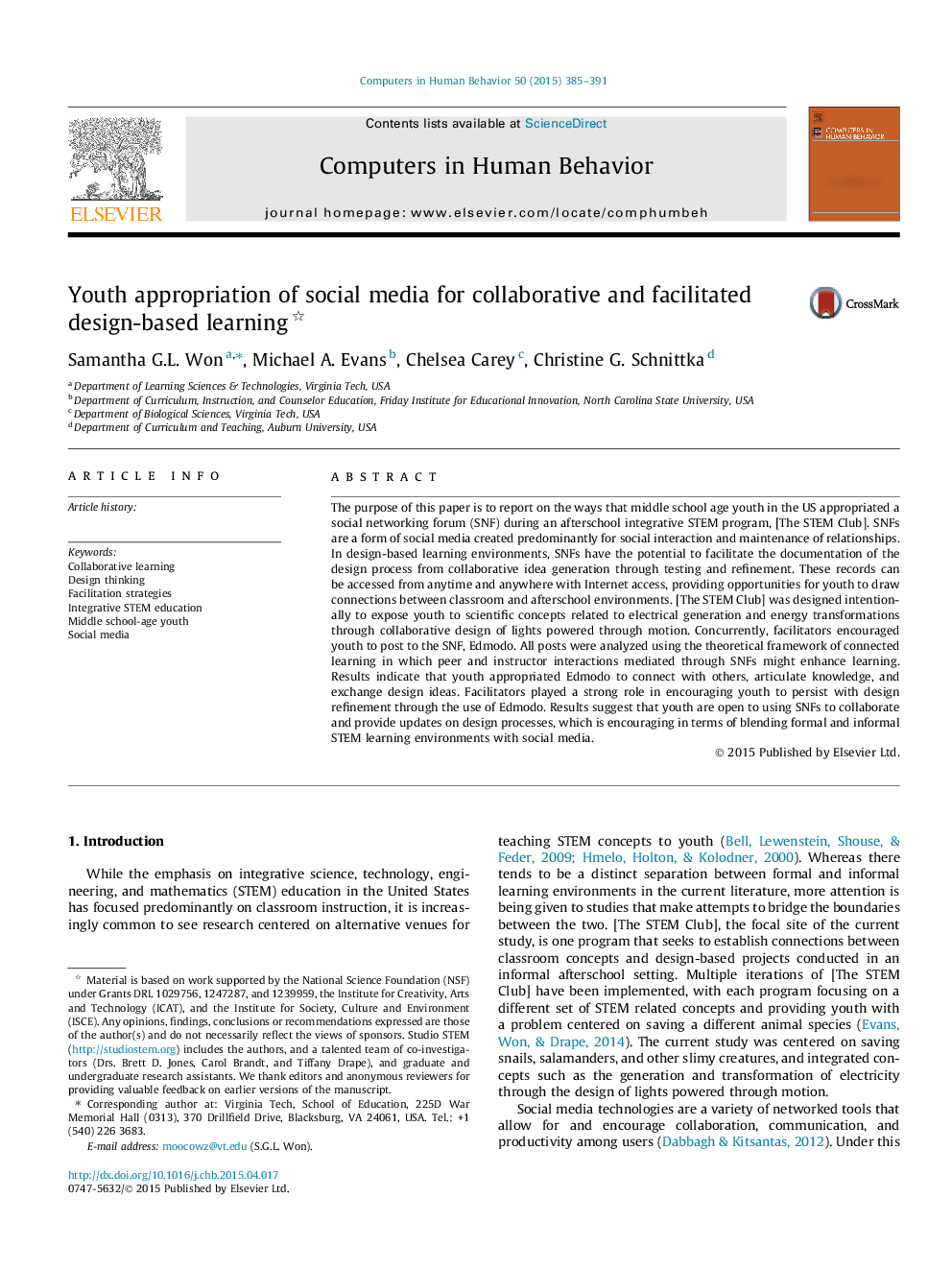| کد مقاله | کد نشریه | سال انتشار | مقاله انگلیسی | نسخه تمام متن |
|---|---|---|---|---|
| 6838189 | 618440 | 2015 | 7 صفحه PDF | دانلود رایگان |
عنوان انگلیسی مقاله ISI
Youth appropriation of social media for collaborative and facilitated design-based learning
ترجمه فارسی عنوان
تخصیص جوانان رسانه های اجتماعی برای یادگیری مبتنی بر طراحی مشترک و تسهیل شده
دانلود مقاله + سفارش ترجمه
دانلود مقاله ISI انگلیسی
رایگان برای ایرانیان
کلمات کلیدی
موضوعات مرتبط
مهندسی و علوم پایه
مهندسی کامپیوتر
نرم افزارهای علوم کامپیوتر
چکیده انگلیسی
The purpose of this paper is to report on the ways that middle school age youth in the US appropriated a social networking forum (SNF) during an afterschool integrative STEM program, Studio STEM. SNFs are a form of social media created predominantly for social interaction and maintenance of relationships. In design-based learning environments, SNFs have the potential to facilitate the documentation of the design process from collaborative idea generation through testing and refinement. These records can be accessed from anytime and anywhere with Internet access, providing opportunities for youth to draw connections between classroom and afterschool environments. Studio STEM was designed intentionally to expose youth to scientific concepts related to electrical generation and energy transformations through collaborative design of lights powered through motion. Concurrently, facilitators encouraged youth to post to the SNF, Edmodo. All posts were analyzed using the theoretical framework of connected learning in which peer and instructor interactions mediated through SNFs might enhance learning. Results indicate that youth appropriated Edmodo to connect with others, articulate knowledge, and exchange design ideas. Facilitators played a strong role in encouraging youth to persist with design refinement through the use of Edmodo. Results suggest that youth are open to using SNFs to collaborate and provide updates on design processes, which is encouraging in terms of blending formal and informal STEM learning environments with social media.
ناشر
Database: Elsevier - ScienceDirect (ساینس دایرکت)
Journal: Computers in Human Behavior - Volume 50, September 2015, Pages 385-391
Journal: Computers in Human Behavior - Volume 50, September 2015, Pages 385-391
نویسندگان
Samantha G.L. Won, Michael A. Evans, Chelsea Carey, Christine G. Schnittka,
